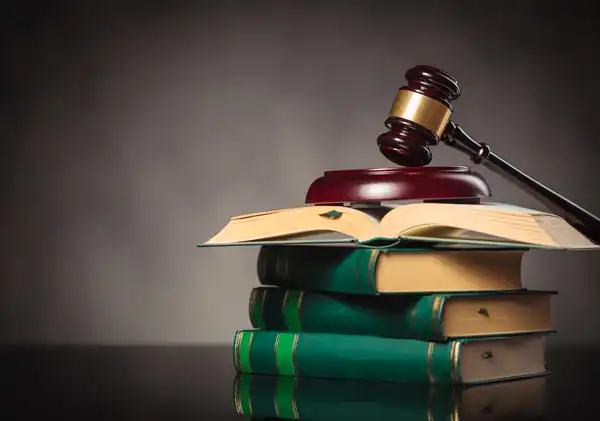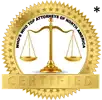
11 Important Questions To Ask Yourself Before Filing For Bankruptcy In Texas
Summary:
If you live in Texas and are considering filing for bankruptcy, it's a major decision that requires understanding your options and potential outcomes. This guide will help you ask the right questions to determine which type of bankruptcy might be best for you and whether filing is the right choice.
1. What Is Bankruptcy?
Bankruptcy is a legal process that helps individuals or businesses who cannot repay their outstanding debts. It allows debtors to eliminate or reorganize debts under federal law, providing a fresh start or manageable repayment plan.
2. Am I Eligible for Bankruptcy?
- You must pass a “means test” comparing your income to Texas's median income (approx. $66,963 as of 2024) to qualify for Chapter 7.
- If you do not qualify for Chapter 7, Chapter 13 may still be available.
- Eligibility depends on income, household size, and financial situation. Consult a qualified attorney for exact evaluation.
3. What Types of Bankruptcy Are Available?
- Chapter 7: Designed for people with little or no income. Involves liquidation of non-exempt assets to discharge most unsecured debts, giving you a fresh start.
- Chapter 13: For individuals with a steady income who want to reorganize debt and repay over 3–5 years while keeping assets like your home and car.
4. What Are the Pros and Cons of Filing?
Pros
- Eliminates or restructures debts
- Automatic stay stops creditor harassment and collection efforts
- Offers a financial fresh start
Cons
- Can negatively impact your credit score for several years
- Possible loss of some assets (especially under Chapter 7)
- Public record of bankruptcy filing
5. Which Debts Will Be Discharged?
Bankruptcy can discharge many unsecured debts, but some are non-dischargeable:
- Child support and alimony payments
- Certain tax debts
- Student loans (usually)
- Debts from fraudulent activity
Chapter 7 typically erases dischargeable debts; Chapter 13 reorganizes debts into a repayment plan.
6. Will I Lose My Property and Assets?
Texas offers generous exemptions to protect your property:
- Homestead exemption: Protects up to 10 acres in a city or 100 acres in a rural area.
- One vehicle per licensed adult household member is exempt.
- Up to $100,000 personal property exemption per household.
- Retirement accounts, life insurance, and other assets may be exempt — consult an attorney.
Chapter 7 may require selling non-exempt property; Chapter 13 usually allows you to keep your property while repaying debts.
7. How Will Bankruptcy Affect My Credit?
Bankruptcy remains on your credit report for 7–10 years, negatively impacting your credit score. However, it provides a way to start rebuilding credit over time, which may be impossible if debts remain unpaid.
How long does bankruptcy stay on my credit report?
Chapter 7 remains up to 10 years; Chapter 13 typically remains 7 years.
8. What Are the Alternatives to Bankruptcy?
- Debt consolidation
- Negotiating payment plans with creditors
- Credit counseling and budgeting assistance
Consider these options before filing, but consult an attorney to evaluate if they are feasible in your situation.
9. How Long Does the Bankruptcy Process Take?
- Chapter 7: Usually 3–6 months
- Chapter 13: Generally 3–5 years as payments are made under a court-approved plan
The process includes filing petition, credit counseling, attending creditor meeting, and submitting financial disclosures. Your attorney can help estimate timelines based on your case specifics.
10. Can I Keep My House and Car?
Yes, under Texas law:
- Home: Protected under Texas Homestead exemption with no value limit for your primary residence.
- Vehicle: One vehicle per licensed adult household member is exempt.
If you are behind on financed vehicle payments, creditors can repossess; keeping your home and car often depends on staying current on payments and bankruptcy chapter choice.
11. Should I Consult an Attorney?
Filing bankruptcy without an attorney is possible but risky. Experienced Texas bankruptcy attorneys protect your assets, ensure correct paperwork, and guide you through complex legal processes. Courts do not provide legal advice, so professional representation is strongly recommended.
Frequently Asked Questions (FAQs)
- Can bankruptcy stop foreclosure or car repossession?
- Yes, filing triggers an automatic stay that halts most collection actions temporarily. However, outcomes depend on your case type and payments made.
- Will my spouse be affected if I file bankruptcy?
- Filing individually affects only your credit and liabilities unless you share joint debt.
- Are there costs involved in filing bankruptcy?
- Yes, including court filing fees, attorney fees, and sometimes trustee fees.
Key Bankruptcy Terms and Definitions
| Term | Definition |
|---|---|
| Bankruptcy | Legal process to eliminate or restructure debt. |
| Chapter 7 Bankruptcy | Liquidation bankruptcy discharging most unsecured debts. |
| Chapter 13 Bankruptcy | Repayment plan lasting 3–5 years to reorganize debts. |
| Automatic Stay | Court order halting creditor collections after filing. |
| Exempt Property | Assets protected from liquidation under bankruptcy law. |
Contact Texas Bankruptcy Attorney Ted Machi & Associates, P.C.
We understand the stress that debt causes and are here to help you navigate bankruptcy smoothly. Our experienced attorneys will review your situation with compassion and provide tailored advice. Schedule a free consultation today and take the first step toward financial freedom.
All Blog Posts | Recent Blog Posts
Analyze This Page with AI:






